Refugee camps in Bangladesh are home to almost 700,000 Rohingyas fleeing ethnic persecution at the hands of the Myanmar government. Since summer 2017, soldiers and civilians in Myanmar’s northern Rakhine state of Myanmar have led brutal attacks against Rohingya men, women, and children — including murder, beatings, mass rape, opening fire on fleeing families, and torching entire villages. A team of PHR doctors recently visited refugees in camps near Cox’s Bazar, Bangladesh. These are their stories.
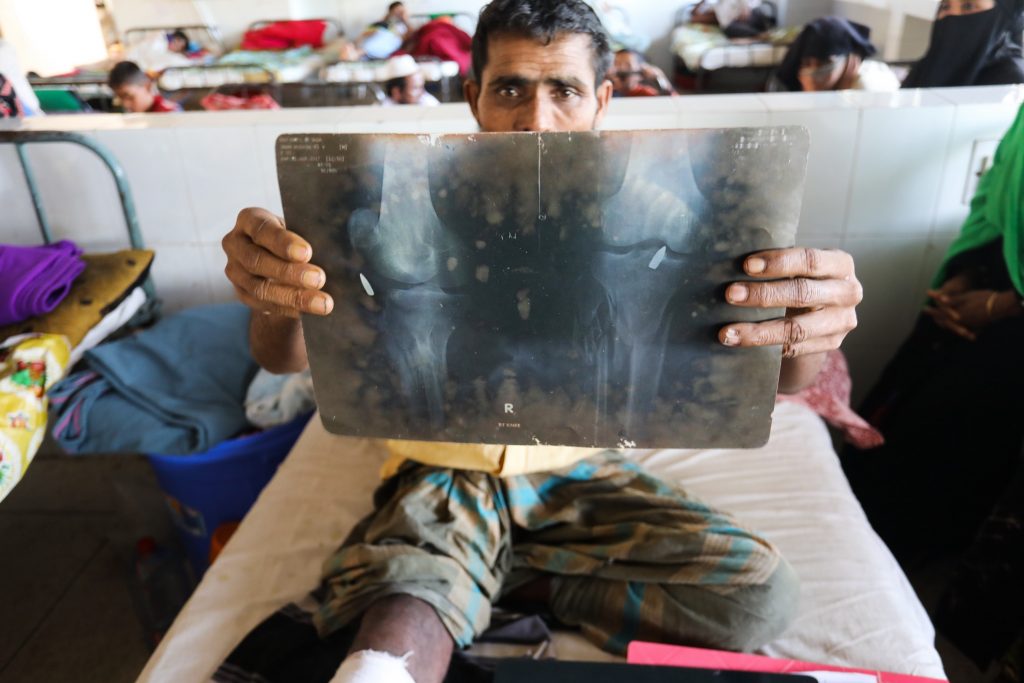
“I was shot while fleeing. I was shot in my right lower leg as my family and I were escaping a military attack on foot about a month and a half ago. My family improvised a makeshift stretcher to carry me across the border to Bangladesh. There, they took me to the hospital for treatment.”
Tamir, 45
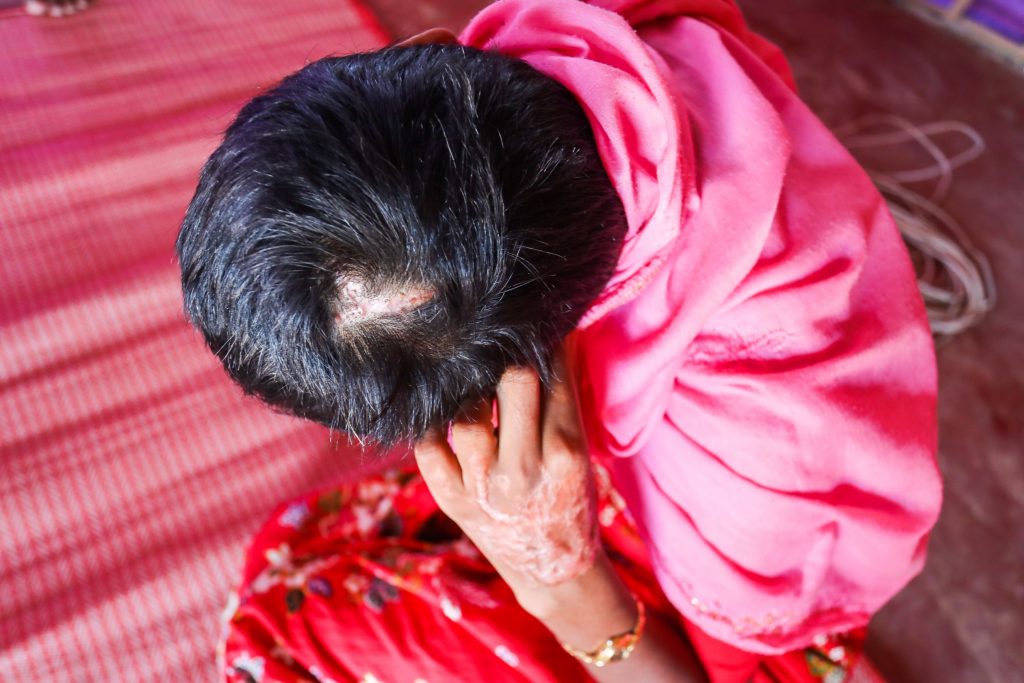
“They wanted to burn me alive.
“Soldiers and members of the Mog ethnic group attacked my village in Tula Toli on the evening of August 26. Five hundred women were captured by village soldiers and split into smaller groups inside a nearby house before the soldiers and Mog men raped the women and began killing the women and children with machetes.Amirah, 15
“I lost consciousness after being struck on the head with a machete; I regained consciousness to the strong smell of burning flesh and pain radiating all over my body. Realizing my hands, feet, and back were in flames, I crawled out of the house where villagers helped me cross into the neighboring village and to the hospital.”
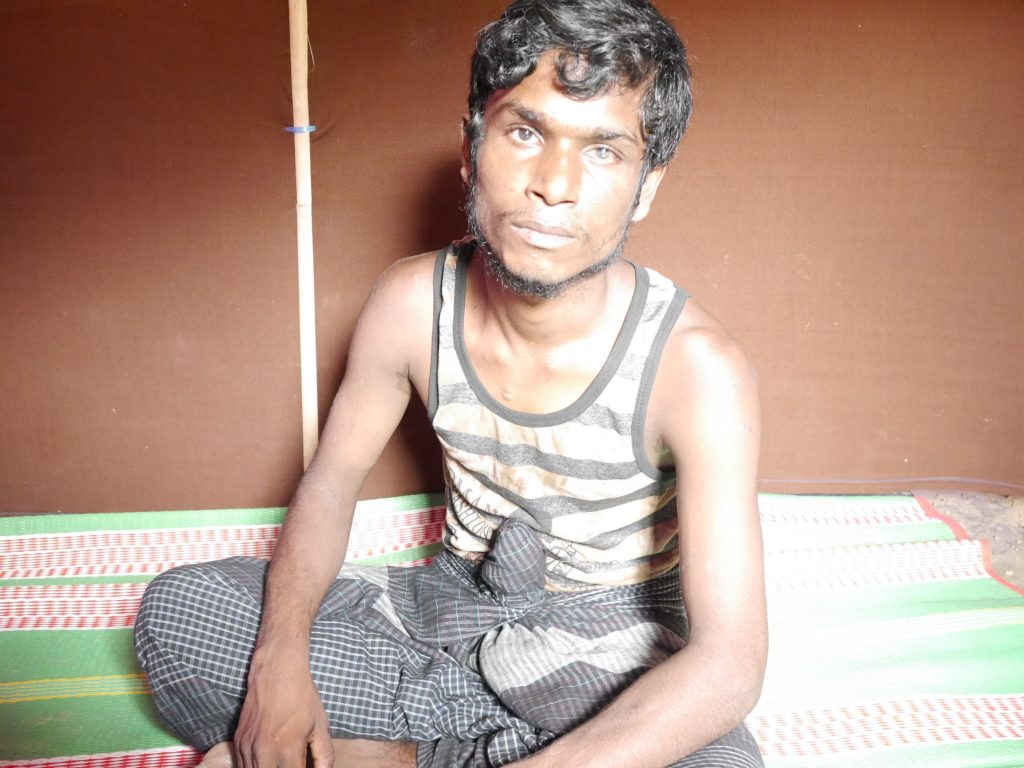
“On August 27, I witnessed a loud explosion inside my home in my village. I collapsed to the ground in a state of confusion after being hit with something hot. My family members picked me up and led me out of the house, away from the village, when I noticed pain fixated in my right hand, left eye, arms, and chest. I remember not being able to see well, from the combination of smoke and flames and blurred vision in my left eye, as my family and I walked for two days to Bangladesh.
“I can only see light and dark from my left eye, not any shapes or colors.”
Karim
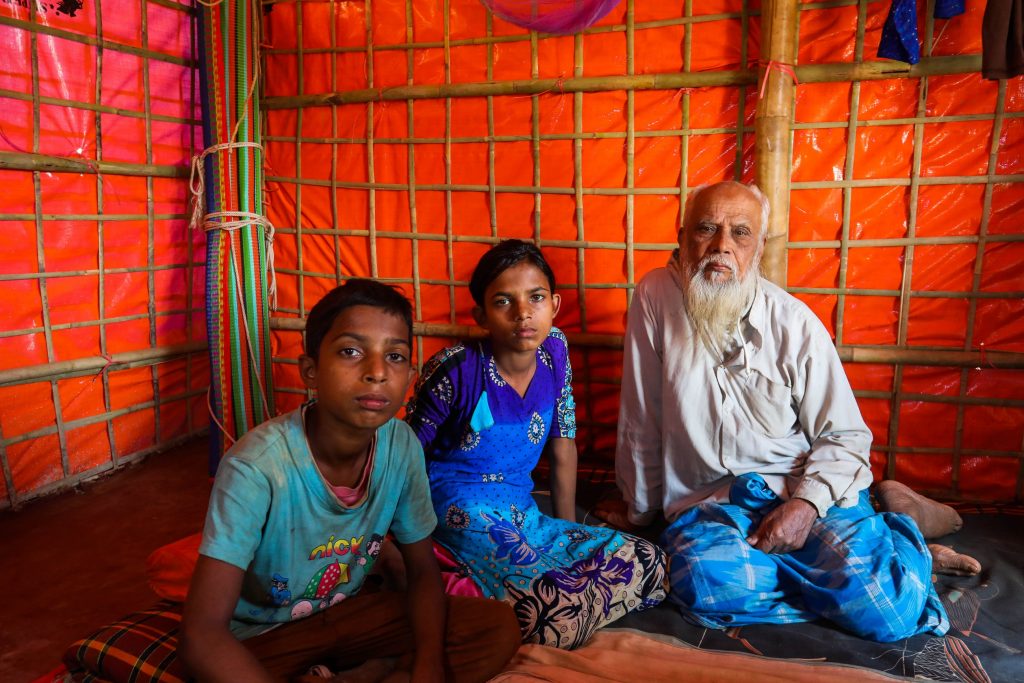
“I was inside of my home in the village of Tula Toli, along with my mother, father, brother, uncle, and 16 other family members, on the morning our village was attacked. We all fled our home by foot as soldiers opened fire and started burning houses, prompting villagers to retreat to a nearby river bank. I managed to escape into the river where soldiers continued shooting towards me; from the river, I saw with my own eyes my parents being shot. I also felt a lot of pain in my hip.
“As I crossed the border into Bangladesh, I was transported to a hospital in Cox’s Bazar by villagers.”
Noor, 10
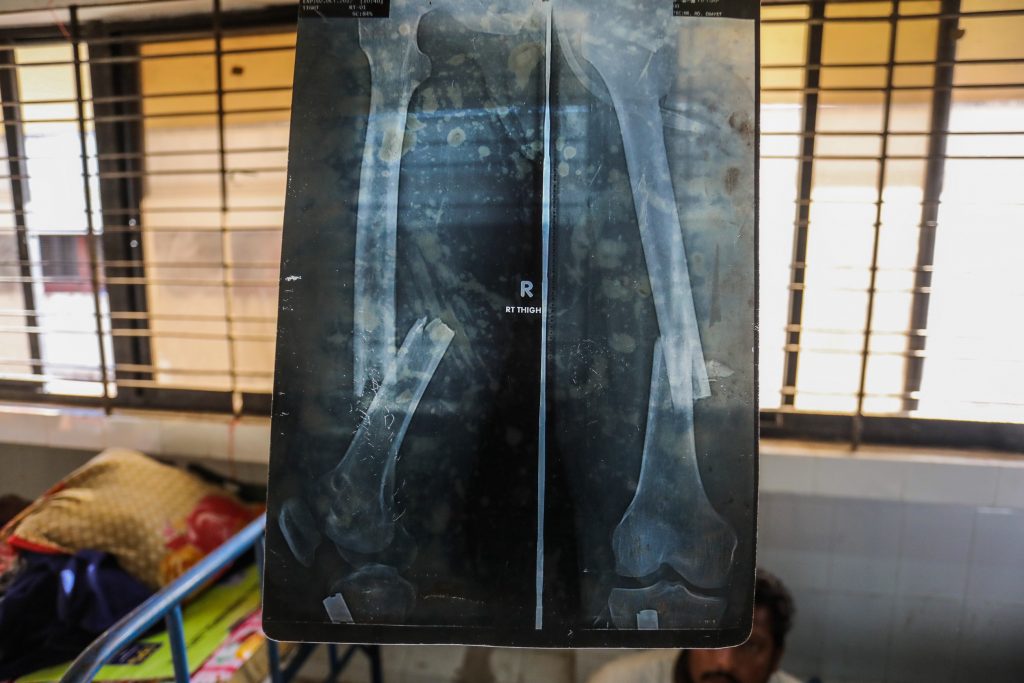
“We attempted to flee the attack. They bound our hands with rope before taking turns to strike us with their rifles. They stopped beating me only when I pleaded to the soldiers that I would retreat to Bangladesh and never return to Myanmar again.”
Amir
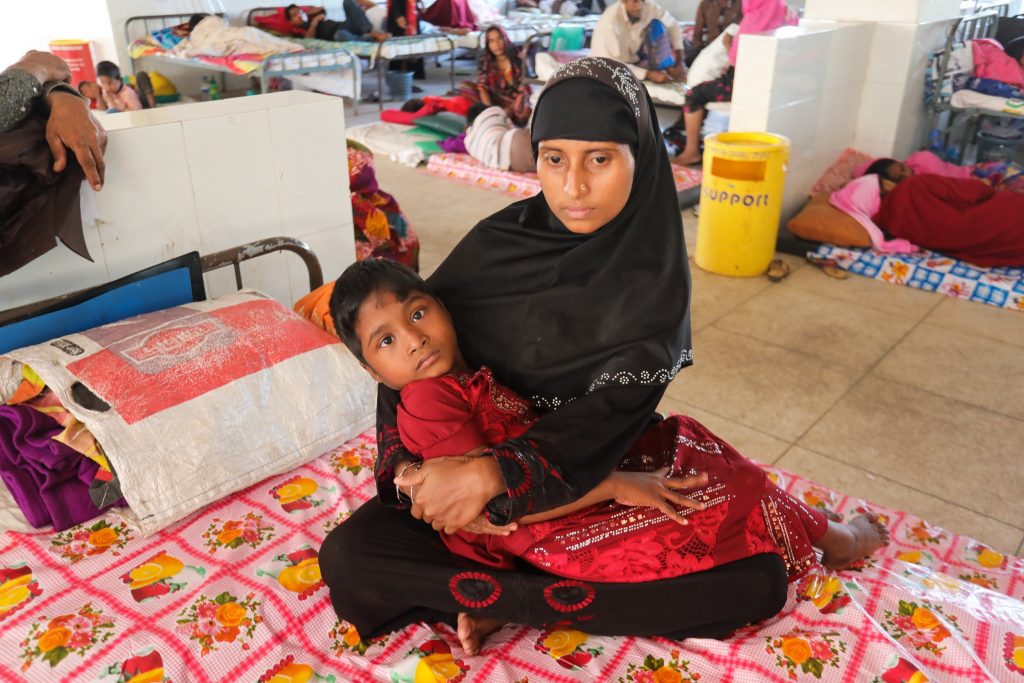
“I was in the house with my husband and Muriam, as well as Muriam’s grandparents. Our village was attacked by army soldiers, who began firing their rifles and throwing grenades at some of the homes. We ran out of our house, and one particular soldier grabbed Muriam and threw her against a wall. Then he and three others began to kick and stomp her with their combat boots.
Mother of five-year-old Muriam, who appears to have suffered a pelvic fracture and neurological damage when she was assaulted by members of the Myanmar military.
“The physical attack lasted several minutes, and all that I and Muriam’s grandparents could do was beg them to stop. But it only got worse when the soldiers shot and killed my husband during the attack. I carried Muriam, with the help of her grandparents, to Bangladesh. When we arrived, she was in excruciating pain. We took her to the hospital and she couldn’t even walk. Muriam is still unable to bear weight or stand, and I take care of everything that she needs.”
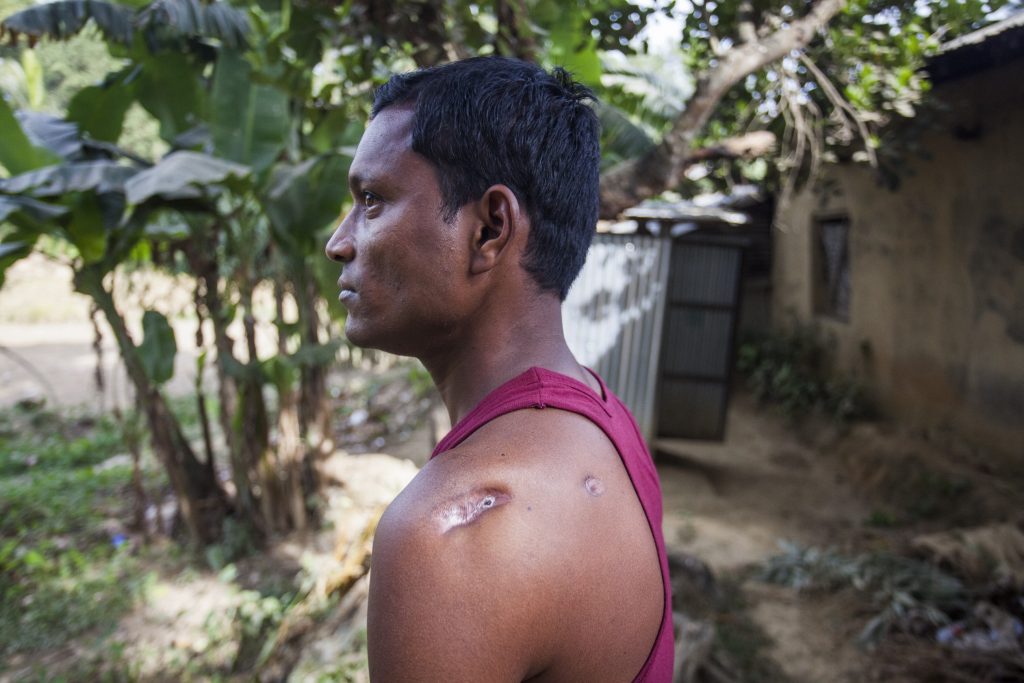
“After my village was attacked by military soldiers in late August, I was shot in the back as I escaped into nearby fields. On the morning of the attack, people who looked like Buddhists began firing guns into homes and setting houses on fire on one side of the village. I was inside my home with my parents, brothers, and sisters at the time of the attack, but became separated upon attempting to run away from the village and the soldiers.
Muhammed
“I was running across the fields in a group of about seven or eight men when soldiers about 50 to 100 meters behind us fired their guns, striking me in the back as I continued to flee. I was picked up by other men and carried to Bangladesh over the course of seven days. At a hospital in Bangladesh, doctors removed the bullet from my back. All that remains now is the scar, and the brutal memories.”
All names have been changed to protect patients’ privacy. Please credit photos to Salahuddin Ahmed Paulash for Physicians for Human Rights.
